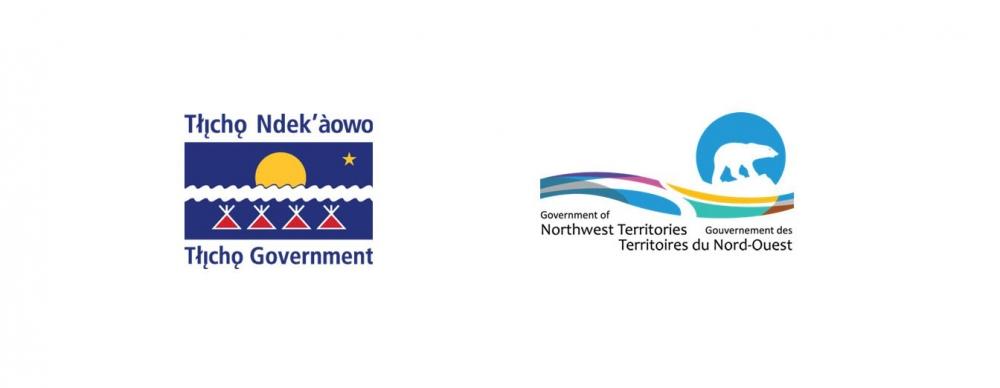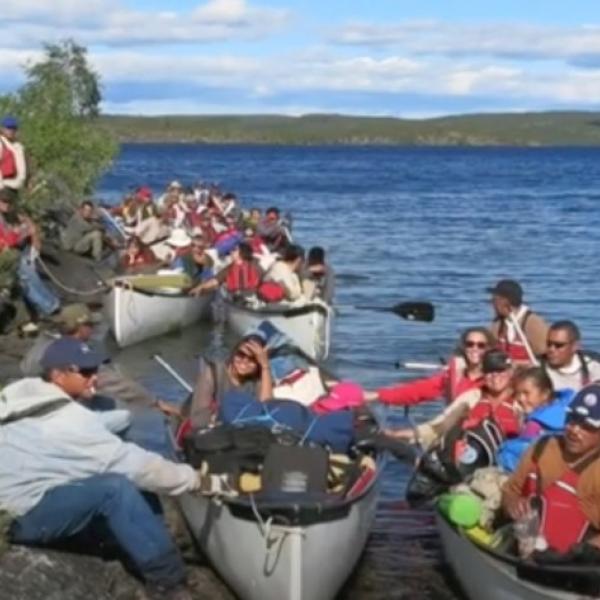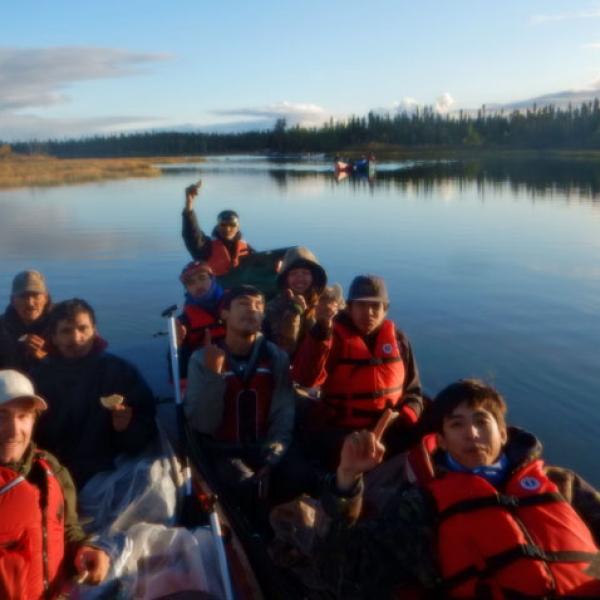News Release: GNWT and Tłı̨chǫ Government build on wolf (dìga) management pilot program to support barren-ground caribou (ɂekwǫ̀) recovery
YELLOWKNIFE (August 27, 2020) – The Government of the Northwest Territories (GNWT) and Tłı̨chǫ Government have submitted a revised joint proposal to manage wolves on the Bathurst and Bluenose-East caribou herd winter ranges.
The joint proposal to the Wek’èezhìı Renewable Resources Board (WRRB) is based on the best available scientific, local and traditional knowledge, and builds on successes in other jurisdictions and lessons learned from the 2020 wolf management pilot program in the North Slave region. It is part of a wide range of management actions the GNWT, Tłı̨chǫ Government and our co-management partners are taking to support the recovery of barren-ground caribou, including ongoing harvest restrictions and implementation of the Bathurst Caribou Range Plan.
The proposal focuses on reducing the number of wolves on the Bathurst and Bluenose-East caribou winter ranges over the next four years through increased support for harvesters and our traditional economy. It includes workshops and training for wolf harvesters and increased support for community-based wolf harvesting through the Enhanced North Slave Wolf Harvest Incentive Program. If removal targets are not reached through harvesting, targeted aerial reduction may be required to meet levels required to support caribou recovery.
Research and monitoring are also an important part of effective wolf management and will help us adapt our actions to maximize effects on caribou recovery.
“Together with our co-management partners, we’ve taken action to limit harvest and put in place measures to manage disturbance to caribou, but we know we need to do more to help the herds recover. Last year’s pilot program to reduce wolves on the winter ranges of Bathurst and Bluenose-East caribou provided invaluable information that will help us understand wolf populations in the North Slave region—where they live, what they eat and how they interact with caribou—and assess the effectiveness of our continued management actions.” -Shane Thompson, Minister of Environment and Natural Resources
“Our people have been talking about the caribou for a long time. The caribou are in danger and we all need want to do more to assist in their recovery. We have had meetings with our Elders and our traditional knowledge affirms that wolves are an important animal and must be treated with great respect even when harvesting them. We are committed to the training of our harvesters for the purpose of a controlled wolf harvest using Tłı̨chǫ traditional knowledge practices in the wintering ranges of the Bluenose East and Bathurst Caribou. It is time to put stronger actions in place before it is too late for the caribou.” -Grand Chief George Mackenzie, Tłı̨chǫ Government
- Wolves are the primary predator of barren-ground caribou in the Northwest Territories. On average, a single wolf can eat 23-29 caribou per year. Given the current low numbers of Bathurst and Bluenose-East caribou, this level of predation is a significant contributor to caribou mortality.
- In January 2020, the GNWT and Tłı̨chǫ̨ Government submitted a joint Wolf Management Proposal to the Wek’èezhìı Renewable Resources Board (WRRB) outlining a five-year wolf management program. In March 2020, the WRRB provided support for a wolf management pilot program.
- The GNWT and Tłı̨chǫ̨ Government approach to wolf management in the North Slave region focuses on support for wolf harvesters and the traditional economy through training opportunities and financial incentives for community-based harvesters.
In 2019-20, NWT and Nunavut harvesters received approximately $58,400 under the Enhanced North Slave Wolf Harvest Incentive Program, launched in 2019.
- The number of wolves removed from the Bathurst caribou winter range in 2019-20 (31 wolves) met the removal target to help support caribou herd recovery. Removal levels from the Bluenose-East caribou range were lower than the target, but should still have a meaningful impact on herd predation.
- Satellite collars on 11 wolves and 140 Bathurst and Bluenose-East caribou will allow us to learn more about wolf and caribou movements and how they interact.
- Wolf carcasses are being studied to learn about diet and life history, and pelts are being prepared by Indigenous harvesters and sold at auction, whenever possible.
- Sustained removal effort will be required over the next four years to keep wolf predation rates low and give caribou the best possible chance at recovery.
- Determining the success of this initiative will take time. All predator management actions undertaken by the GNWT, Tłı̨chǫ Government and co-management partners will be closely monitored to ensure we measure results and adapt our approach, as required.
- GNWT and Tłı̨chǫ Government Joint Proposal on Management Actions for Wolves (dìga) on the Bathurst and Bluenose-East Barren-ground Caribou (ɂekwǫ̀) Herd Winter Ranges: 2021-2024 – Full proposal
- Wolf management actions 2019-20 update – Fact sheet
- GNWT and Tłı̨chǫ Government Approach to Wolf Management - Summary document
- Barren-ground Caribou – Wolf Management (ENR website)
- FAQ: Enhanced North Slave Wolf Harvest Incentive Program (ENR website)
- Bathurst Caribou Range Plan






